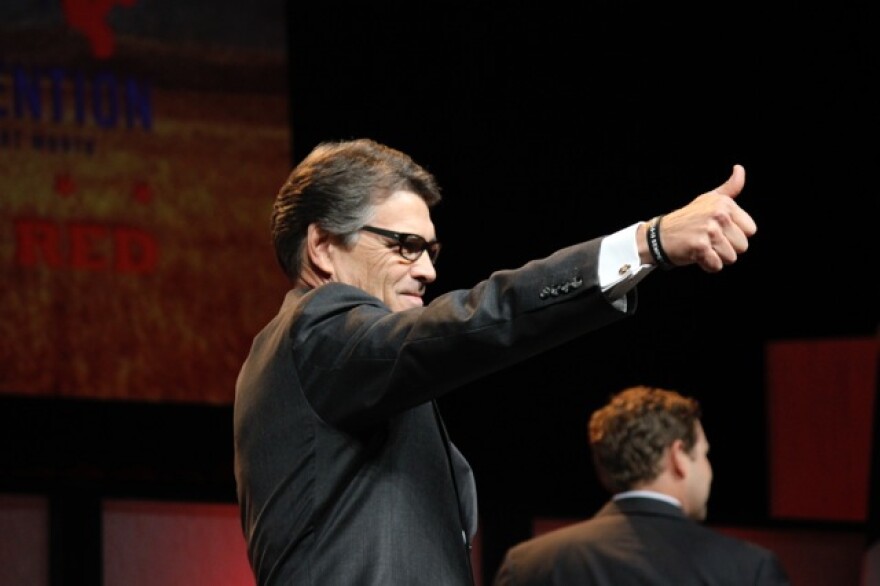Texas Gov. Rick Perry has made a career out of visiting, recruiting, and relocating businesses from California to Texas. But as the state's GOP continues to push further and further to the right of the political spectrum, could the state's ultra-conservative stance hurt recruitment from a progressive state?
First came the Texas Republican Party platform that said homosexuality is a choice and endorsed therapy aimed at "curing" people of being gay – a therapy banned in California.
Then, while on a company recruitment trip – one specifically aimed at enticing California based car maker Tesla to build a factory in Texas – Gov. Perry told a group of businesspeople that homosexuality was like alcoholism: whether or not you feel compelled to do something, you have the ability not to act on your urges.
"I may have the genetic coding that I'm inclined to be an alcoholic. But I have the desire not to do that. And I look at homosexual issue as the same way," Perry said. Watch a video of Perry's response.
Reporters in the room for the event say people in the crowd gasped after hearing Perry's statement. The governor took plenty of criticism over the weekend for his comparison, leading up to a testy exchange with CNBC “Squawk Box” co-anchor Joe Kernen Monday morning.
But do Perry's remarks, or the Texas GOP platform, affect the recruitment of businesses to Texas? Peter Cowen, a professor at University of California-Anderson and managing director of Clear Capital Advisors, says sure – politics play a role. But a state's tax and regulatory policies and real estate costs play the largest part.
"The one area that I think bodes in Texas's favor is it's known as a state that has lower regulations," Cowen says. "So lower regulations translate to lower costs and more predictability to companies."
That's not to say that as politics in general becomes more and more controlled from the fringes, state politics couldn't hurt business. Hispanic business leaders have also taken offense at the tone of Lt. Gov. candidate Dan Patrick's campaign.
"I think the issue is, if you move to a state, are you asking employees to move to a state that may be not as gay friendly – and they're gay and they're in California?" Cowen asks. "I'm sure that would be one factor that comes in to play, especially if they're already settled in California."
But Cowen points out that much of the movement to Texas, like Tesla's possible interest or attempts to lure Sriracha, are expansions, not complete relocations. So a new factory might bring some old employees – but the vast majority of the workers would be either from Texas, or from around the country.





